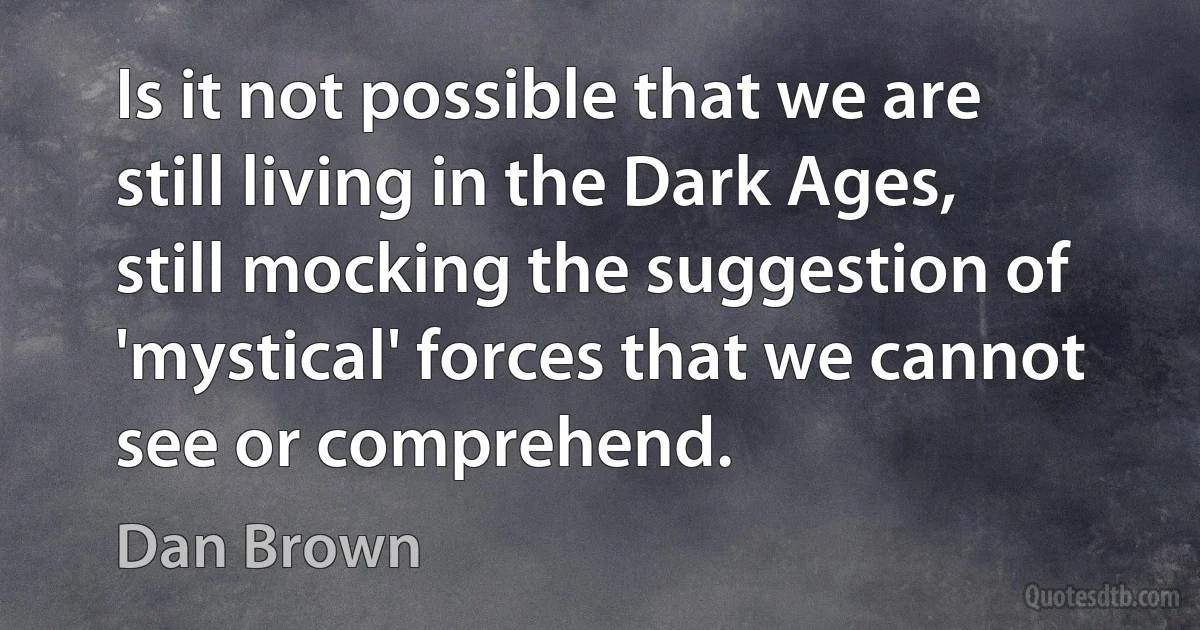Suggestion Quotes - page 5
But if I could make just one small positive suggestion. Everybody knows that Saudi Arabia is very rich in certain mineral deposits - notably of course, sand. Oh my goodness, it's got so much sand, it could export the stuff. Or, even better, it could import a load of water and cement, mix itself into a giant block of concrete, and do us all a huge favour.

Pat Condell
If flying-saucer creatures or angels or whatever were to come here in a hundred years, say, and find us gone like the dinosaurs, what might be a good message for humanity to leave for them, maybe carved in great big letters on a Grand Canyon wall? Here is this old poop's suggestion: WE PROBABLY COULD HAVE SAVED OURSELVES, BUT WERE TOO DAMNED LAZY TO TRY VERY HARD...AND TOO DAMNED CHEAP.

Kurt Vonnegut
Korematsu was born on our soil, of parents born in Japan. The Constitution makes him a citizen of the United States by nativity, and a citizen of California by residence. No claim is made that he is not loyal to this country. There is no suggestion that apart from the matter involved here, he is not law-abiding and well-disposed. Korematsu, however, has been convicted of an act not commonly a crime. It consists merely of being present in the state whereof he is a citizen, near the place where he was born, and where all his life he has lived.

Robert H. Jackson
The suggestion that words are symbols for things, actions, qualities, relationships, et cetera, is naive, a gross simplification. Words are slippery customers. The full meaning of a word does not appear until it is placed in its context, and the context may serve an extremely subtle function -- as with puns, or double entendre. And even then the "meaning" will depend upon the listener, upon the speaker, upon their entire experience of language, upon their knowledge of one another, and upon the whole situation. Words do not "mean things" in a one-to-one relation like a code. Words, too, are empirical signs, not copies or models of anything; truly, onomatopoeia and gestures frequently seem to possess resemblance, but this resemblance does not bear too close examination. A cockerel may seem to say cook-a-doodle-do to an Englishman, but a German thinks it says kikeriki, and a Japanese kokke-kekko. Each can paint only with the phonetic sound of his own language.

Colin Cherry
Go down to City Hall and see what is on the agenda for the next council meeting-garbage collection, water supply, it does not matter which one-then go and learn everything you can about it. Read past reports, talk to people, learn the topic until you know it as well as anyone. Then when you get up to speak, or to make a suggestion for change, your voice will be heard because you are knowledgeable. That is how reform works.

Louis Brandeis
The young district leader chose Baubaus wallpapers at my suggestion, although I had hinted that these were "Communist” wallpapers. He waved that warning aside with a grand gesture: "We will take the best of everything, even from the Communists.” In saying this he was expressing what Hitler and his staff had already been doing for years: picking up anything that promised success without regard for ideology...

Albert Speer
The film has written and spoken dialogue in twenty-five languages-English, French, Japanese, Mandarin, Cantonese, Vietnamese, Latin, Hebrew, necrotic Egyptian ... and it has written calligraphic text on paper, wood, and flesh, on flat and curved surfaces, vertically and horizontally, on both living and dead flesh, in neon, on screens, in projection, as sub-title, inter-title, and sur-title, as High Art and low art, as advertisement and banker's check and registration plate, on photograph, on blackboard, as letter correspondence, as photocopy facsimile, and spoken, chanted, and sung, with and without music ... a mocking challenge. You want text? Cinema wants text? Cinema pretends to eschew text? Then we can give you text to mock that smug suggestion that cinema thinks it is pictures.

Peter Greenaway
The great masses, who have never been, in the history of mankind, more subject to hypnotic suggestion than they are right now, have become the puppets of the "public opinion” that is engineered by the newspapers in the service, it need hardly be emphasized, of the reigning powers of finance. What is printed in the morning editions of the big city newspapers is the opinion of nine out of ten readers by nightfall. The United States of America, whose more rapid "progress” enables us to predict the future on a daily basis, has pulled far ahead of the pack when it comes to standardizing thought, work, entertainment, etc.

Ludwig Klages
Each painting has its own way of evolving. One may start with a few color areas on the canvas; another with a myriad of lines, another with a profusion of colors... Once I sense the suggestion I begin to paint intuitively. The suggestion then becomes a phantom that must be caught and made real. As I work, or when the painting is finished, the subject reveals itself.

William Baziotes
Kennaston could find in the past - even he, who was privileged to view the past in its actuality, rather than through the distorting media of books and national pride - no suggestion as to what, if anything, he was expected to do while his physical life lasted, or to what, if anything, this life was a prelude. Yet that to-day was only a dull overture to to-morrow seemed in mankind an instinctive belief. All life everywhere, as all people spent it, was in preparation for something that was to happen to-morrow.

James Branch Cabell
This is a strong magic. This is a sententious magic. They had warned me that I would here face my own destruction, that I would here face the most pitiable and terrible of all things: and I face here that which I have made of life, and life of me. I shudder; I am conscious of every appropriate sentiment. Nevertheless, sir, I must venture the suggestion that mere, explicit allegory as a form of art is somewhat obsolete.

James Branch Cabell
One of the most important things is corporate politics. Big corporations are bureaucracies that often promote people who are best at covering their asses. Such people run scared, fearful of any suggestion they can make mistakes. And they surround themselves with others who run the same way. Don't take risks. Find out what succeeds and copy it.

Frank Herbert
A wise man once said that next to losing its mother, there is nothing more healthy for a child than to lose its father. And though I would never subscribe to such a statement wholeheartedly, I would be the last person to reject it out of hand. For my own part, I would express such a doctrine without any suggestion of bitterness against the world, or rather without the hurt which the mere sound of the words implies.

Halldór Laxness
'Kant ought to be arrested and given three years in Solovki asylum for that "proof" of his!' Ivan Nikolayich burst out completely unexpectedly. 'Ivan!' whispered Berlioz, embarrassed. But the suggestion to pack Kant off to an asylum not only did not surprise the stranger but actually delighted him. 'Exactly, exactly!' he cried and his green left eye, turned on Berlioz glittered. 'That's exactly the place for him! I said to him myself that morning at breakfast: "If you'll forgive me, professor, your theory is no good. It may be clever but it's horribly incomprehensible. People will think you're mad."' Berlioz's eyes bulged. At breakfast... to Kant?

Mikhail Bulgakov



